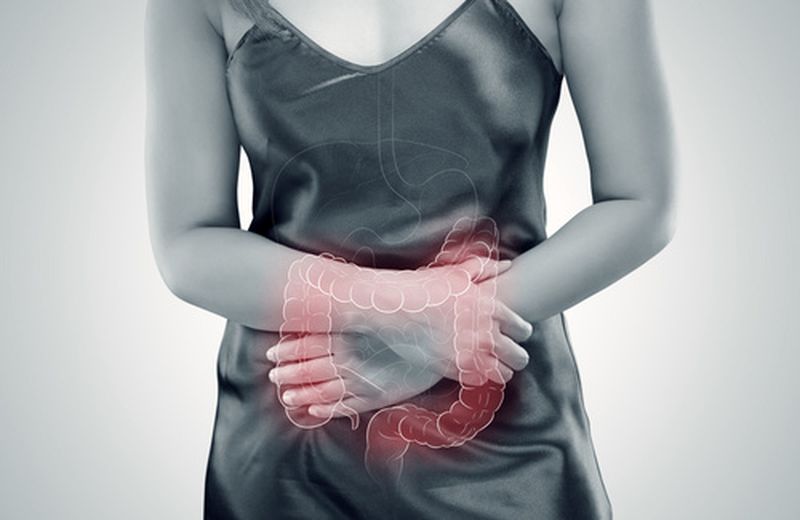How to heal an inflamed colon
The inflamed colon, or irritable colon, is a disorder that affects many people, especially women. The causes are still to be fully investigated but are often linked to multiple factors. Proper nutrition and natural remedies can help.

Inflamed colon, irritable colon , episodic cases at times or a real syndrome: the reality is that more and more people are affected, especially women, and the causes are still poorly known.
In relatively recent times, recognition has been given to the microbiota, our intestinal flora, also called the “sixth sense” , a real organ composed of billions of cells, of microorganisms, which when they change composition or undergo an alteration causing inflammation of the colon and food is the basis for the modifications of the microbiota.
Symptoms of the inflamed colon
With particular exceptions , the symptoms of the inflamed colon are common although not always all present together:
> belly swelling;
> abdominal pain ;
> bloating and flatulence;
> intestinal irregularity;
> altered consistency of the stool also with the presence of mucus.
These direct symptoms are also accompanied by associated malaise conditions such as headaches, irritability, fatigue, difficulty concentrating, back pain , feeling of indigestion.
Read also Herbal teas for the inflamed colon >>
Causes of the inflamed colon
The actual causes are not yet known, in the sense that it has not yet been proven which substances inflame the intestine .
Often, however, the irritative disorders of the colon become chronic and are associated with the stress that pours and somatizes in the intestine , our second brain, with easy infections in case of lowering of the immune defenses, with drugs that have depleted the microbiota and have damaged it, to foods to which you may be intolerant or even allergic.
Nutrition for the inflamed colon
The first “cure” for the inflamed colon passes from food , because if we think about it we eat at least 3 or 5 days a day, we drink many more times and if our food became our primary medicine it would really be a great success.
Each subject reacts to himself to foods that can be irritating to the colon, however we can indicate some that are potentially harmful for those suffering from inflammation of the colon, spastic colitis and irritable bowel syndrome:
> milk, dairy products;
> refined flours;
> sausages;
> fruit (peaches, pears, plums, grapes)
> vegetables (artichokes, onions, rocket, cucumbers)
> legumes and potatoes ;
> chocolate;
> coffee , tea;
> carbonated drinks.
Inflamed colon, what to eat
Given that the diet must be formulated by an ad personam nutritionist, we can indicate some foods that are tolerable by subjects suffering from inflammation of the colon:
> blue fish;
> white and red meats, possibly from grazing animal farms;
> whole grains (also brown rice to be preferred over white rice);
> fermented foods such as sauerkraut and miso soup;
> vegetables (courgettes, cabbage, radishes, chard);
> eggs ;
> white yogurt without sugar;
> dried fruit (almonds and walnuts).
Unfortunately, fruit is a sore point, although it does good in general, in this specific case it can promote bacterial production and create fermentation due to its sugar content.
The range of allowed fruits is restricted to acidic ones such as lemons and grapefruits or to fatty ones such as avocado , coconut , banana , and kiwi for its contribution of prebiotic fibers.
It can happen to be celiac subjects without knowing it, because no further investigations have been made in this sense. In the uncertainty, taking gluten-free foods may be advisable : now we can easily find brown rice or corn pasta, wholemeal biscuits, gluten-free starchy foods that can be included in the diet of those suffering from inflammation of the colon.
Natural anti-inflammatories for the irritated colon
We can take some natural remedies to soothe the inflammation of the colon, promote transit and regulate intestinal functions.
Mallow Mallow is rich in mucilage, flavonoids, Vitamins A, C, B1, mineral salts
. Mallow is a real anti-inflammatory to be used in case of colitis , as it acts directly on the mucous membranes it comes into contact with.
It performs an emollient and soothing activity on the inflamed intestinal walls. We can take it as an infusion, it will also benefit the entire digestive tract starting from the oral cavity.Chamomile
Chamomile is rich in flavonoids , mucilages, azulene, salicylic acid, oleic acid and lactones. It has sedative , calming, muscle relaxant, antispasmodic and anti-inflammatory properties.
It is a complete anti-inflammatory in the case of an irritated colon, since in addition to soothing inflammation , it has a decongestant , pain-relieving and disinfectant action on the bacterial flora.
Aloe Aloe Vera
is rich in mucilage with anti-inflammatory and healing properties. Aloe performs many actions from antibacterial to antioxidant, antiviral and detoxifying.
It acts on the gastrointestinal system and the immune system. It serves to strengthen our microbiota , to soothe the inflamed colon, to soften the stool. It is good to pay attention to which Aloe you buy. It must be of excellent quality extracted from leaf gel, the noblest part of the Aloe plant, deprived of aloin, which would be irritating to the intestinal mucous membranes.
Probiotics
Probiotics such as Lactobacilli and Bifidobacteria, which manage to arrive unaltered in the intestine, are useful in case of irritated colon because they perform an anti-inflammatory action and reintegrate the intestinal epithelium . They can also be associated with prebiotics such as psyllium and inulin to regulate constipation / diarrhea alternations. They help to increase the intestinal flora and strengthen it.




























+ There are no comments
Add yours